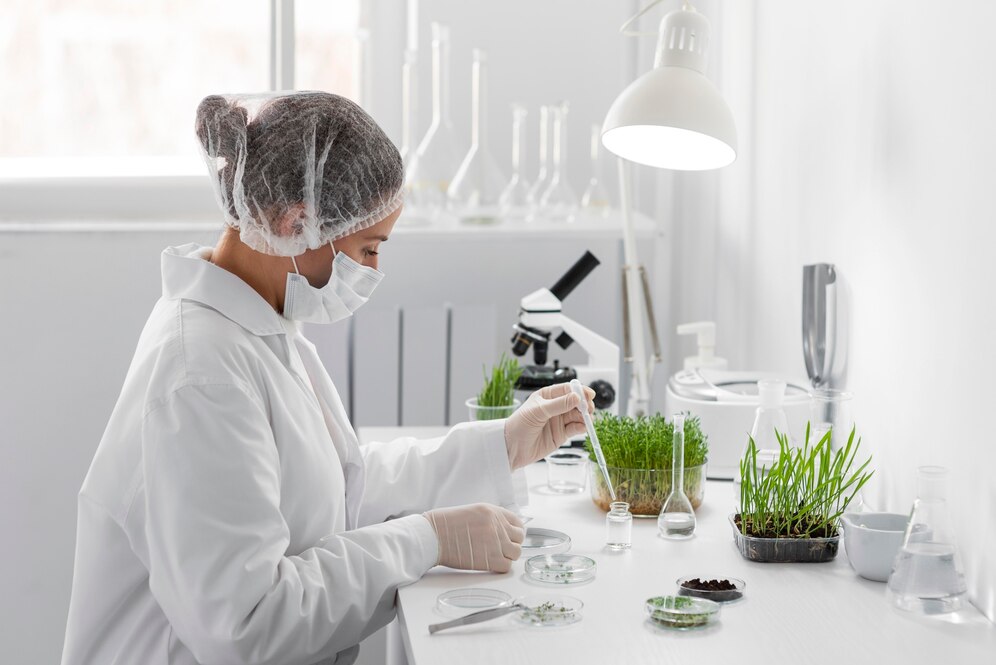The Science Blog

Global Biotech Regulations: What You Need to Know
In the fast-moving field of biotechnology, regulations are key. They help make sure that scientific progress meets ethical standards and keeps the public safe. Knowing global biotech rules is key for researchers, policymakers, and stakeholders in this fast-changing field. This blog explores biotech regulations, global policy harmonisation, and the key ethical issues involved.
Biotechnology can change medicine, agriculture, and environmental science. It brings both challenges and opportunities. As technologies evolve, so too must the regulatory frameworks that govern them. However, navigating the complex landscape of global biotech regulations can be daunting. This blog gives a clear look at biotech regulations. It focuses on global policy and ethical science.
Key Benefits / Why It Matters
The Importance of Biotech Regulations
Biotech regulations are vital for several reasons. Firstly, they ensure the safety and efficacy of biotechnological products and processes. Regulations set standards for testing, approval, and monitoring. This helps protect public health and the environment from risks linked to new technologies. Introducing genetically modified organisms (GMOs) into our food needs careful checks. This helps avoid problems like cross-breeding with non-GMO crops or unexpected health issues.
Regulations also serve to uphold ethical standards in research and development. For stem cell therapies, strict oversight is needed. This ensures informed consent, sources materials properly, and follows protocols that protect human dignity.
Regulations also spark innovation. They offer a clear framework for researchers and companies to work within. Regulations set guidelines for intellectual property rights, clinical trials, and commercialisation. This encourages investment in biotechnology. As a result, it drives economic growth and technological advancement.
In countries with strong rules, companies are more likely to invest. This is because there’s less risk of legal issues. A stable environment is vital in high-risk, high-reward fields like biotech. In this sector, product development can take ten years or longer.
Real-Life Applications of Biotech Regulations
Consider the development of new pharmaceuticals. Before a drug can be marketed, it must undergo a series of clinical trials to demonstrate its safety and efficacy. Regulatory bodies like the European Medicines Agency (EMA) in the EU and the Food and Drug Administration (FDA) in the US are crucial. They oversee trials and approve new treatments. Their stringent standards ensure that only safe and effective drugs reach consumers.
In agriculture, biotech rules control GMO use. They make sure genetically modified crops are safe for people and the environment. The Cartagena Protocol on Biosafety is an international agreement. It offers a framework for safely transferring, handling, and using living modified organisms (LMOs). This protocol helps raise public awareness. It encourages people to take part in biotechnology decision-making.
Environmental biotechnology involves using microbes to clean polluted water and soil. This area is also under regulatory oversight. These applications need careful monitoring. This helps prevent ecological disruption and stops the unintended spread of engineered organisms.
Data-Backed Insights
A report from the OECD shows that countries with strong biotech rules have more innovation and greater public trust in biotechnology. This link shows how important good regulations are for a strong biotech sector. Countries such as Switzerland, Singapore, and the United Kingdom are now biotech hubs. This is partly because they have clear and flexible regulations.
A study in Nature Biotechnology found that global regulations could cut the time and cost of launching new biotech products. When countries align their standards, companies can simplify their operations. This lets them focus on innovation instead of dealing with different regulations.
For example, when regulatory documents can be used in different countries, developers save time. They can follow the International Council for Harmonisation guidelines. This helps them focus on science instead of repeating work.
Additional Expert Tips & Common Mistakes to Avoid
Best Practices in Navigating Biotech Regulations

- Stay Informed: Biotech regulations are constantly evolving. Keeping abreast of changes in policy and guidelines is crucial for compliance and strategic planning. Subscribe to industry publications, join professional groups, and attend biotech conferences. These actions offer insights into regulatory trends and expected policy changes.
- Connect with Regulatory Bodies: Talking openly with regulatory authorities can speed up approvals. Engaging with regulators early helps get feedback and guidance. This reduces the chance of expensive delays. Some jurisdictions offer pre-submission meetings and scientific advice programmes to support innovators.
- Prioritise Ethical Considerations: Ethical science is at the heart of biotech regulations. Keeping research and development activities ethical helps with compliance and builds public trust. This means doing risk assessments, protecting data privacy, and getting informed consent for clinical trials. Institutions should form internal ethics committees and follow Good Clinical Practice (GCP) standards.
- Build Cross-Functional Teams: Successful biotech firms create teams with experts from different fields. These teams include regulatory affairs specialists, legal advisors, and ethicists. This method makes sure each step of product development meets scientific and legal needs.
Common Mistakes and Misconceptions
One common misconception is that biotech regulations stifle innovation. Regulations have some limits, but they aim to keep us safe and effective. This helps both consumers and the industry. Regulations can help innovation. They provide a clear framework, which reduces uncertainty. This, in turn, encourages investment.
Another mistake is underestimating the importance of international collaboration. In today’s globalised world, biotech products often cross borders. Aligning regulations between countries can speed up approvals and lower market entry barriers. Ignoring international standards can cause delays, higher costs, and lost chances in global markets.
A third pitfall is not anticipating regulatory requirements early in development. Retrofitting a product for regulatory standards often costs more and takes longer than designing it to comply from the start.
Advanced Insights / Expert Recommendations
Harmonising Global Biotech Regulations
The biotech industry would greatly benefit from a more harmonised approach to regulations. Each country has its own rules, but aligning these standards can make it easier to approve new products. This will cut costs and speed up new solutions for global issues. These issues include pandemics, food insecurity, and environmental damage.
One approach to harmonisation is the development of international guidelines and agreements. The International Council for Harmonisation (ICH) demonstrates the strong collaboration between regulatory authorities and the pharmaceutical industry. The ICH has made drug approval easier in many areas by creating common guidelines.
In agricultural biotech, safety assessments of GMOs aim to align with groups like the Codex Alimentarius Commission and the OECD Working Group on Biotechnology Regulation.
Achieving full harmonisation is still a challenge. This is because countries have different priorities, public attitudes, and levels of scientific capacity. Continued dialogue and knowledge-sharing among countries can help bridge these gaps.
Lesser-Known Insights
An often overlooked aspect of biotech regulations is the role of public perception. Public acceptance of biotechnology can influence regulatory decisions. Engaging with the public and addressing their concerns can facilitate smoother regulatory processes. Clear communication about the benefits and risks of biotechnology is key. It helps build trust and earn public support.
In Europe, people oppose GMOs, leading to stricter rules. But in the United States and Brazil, acceptance has allowed quicker use of genetically engineered crops.
AI and machine learning could greatly change how regulatory processes work. These technologies help with real-time monitoring and data analysis. They also support predictive modelling and automate parts of the review process. Regulatory sandboxes are safe spaces to test new ideas. They let us evaluate innovations without risking safety.
Conclusion: Navigating the Future of Biotech Through Responsible Regulation

Understanding global biotech regulations is crucial for anyone involved in the biotechnology sector. These regulations keep biotechnological products safe and effective. They also encourage innovation and help countries work together. Stakeholders can effectively navigate the complex regulatory landscape by staying informed, engaging with regulatory bodies, and prioritising ethics.
As the biotech industry continues to evolve, so too must the regulatory frameworks that govern it. Harmonising global regulations and embracing new technologies can streamline processes and accelerate innovation. Working together and being open can help us use biotechnology to tackle big problems like climate change, pandemics, and chronic diseases.
The future of biotechnology depends on a delicate balance between innovation and regulation. It is not enough to develop cutting-edge solutions; we must also ensure that these solutions are safe, ethical, and accessible. Governments, industry leaders, researchers, and the public all have a role to play in shaping the regulatory landscape.
What steps will you take to navigate this complex field? How will you help advance biotechnology responsibly? No matter if you’re a policymaker, scientist, or entrepreneur, staying engaged is vital. Being informed helps drive real change in biotech.









